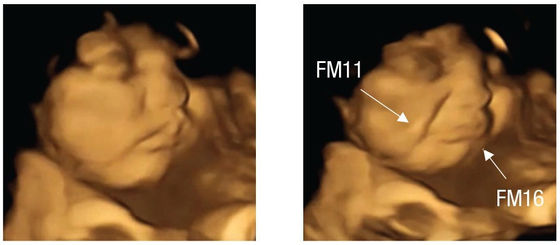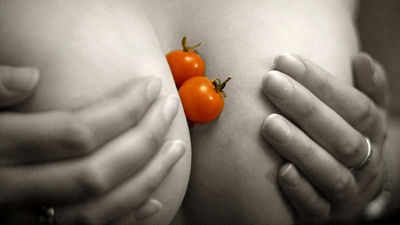It turns out that the fetus laughs and cries in response to the taste of what the mother ate

It is well known that smoking and drinking alcohol during pregnancy affect the fetus. In addition, a new study using high-precision ultrasound scanning that shows the expression of the fetus directly confirmed that the fetus responds to the taste of the food eaten by the mother. This suggests that the mother's diet during pregnancy may be the key to preventing the baby's unwillingness to eat after birth.
Flavor Sensing in Utero and Emerging Discriminative Behaviors in the Human Fetus - Beyza Ustun, Nadja Reissland, Judith Covey, Benoist Schaal, Jacqueline Blissett, 2022
First direct evidence that babies react to ta | EurekAlert!
https://www.eurekalert.org/news-releases/965259
It has long been known that the flavors of the food eaten by pregnant women are transferred to the amniotic fluid, which may be inhaled or swallowed by the fetus. I couldn't find any way to check. Therefore, the research team of Mr. Beyza Ustun et al. at Durham University Fetal and Neonatal Laboratory in the United Kingdom conducted research to observe the fetus with 4D ultrasound , which can shoot three-dimensional images of the fetus like a video. rice field.

The study involved 100 healthy pregnant women between the ages of 18 and 40. However, due to premature birth and restrictions due to the new coronavirus infection, only 81 people were able to participate in both the 32nd and 36th week scans.
Each participant consumed a capsule containing 400mg of carrot or kale powder, equivalent to 50g of raw vegetables, 20 minutes before the scan. In addition, we asked them not to eat any food or flavored drinks for one hour before the scan so that other foods would not affect them. I asked not to take it.
Carrots were chosen for the experiment because they have a high sugar content, which gives them a sweet taste. Kale was similarly chosen because it is more bitter than other green leafy vegetables such as spinach and broccoli.
As a result of examining the facial expressions of fetuses after their mothers ingested carrots, the research team found that there were more reactions of ``smiling faces'' with cheeks and mouth corners rising compared to fetuses who did not ingest carrots. On the other hand, it was also confirmed that there are many 'crying faces' due to the appearance of

Adults perceive the flavor of food through a combination of taste and smell. On the other hand, fetuses floating in the amniotic fluid in the mother's womb are thought to experience taste by inhaling and swallowing the amniotic fluid in the womb.
``There are many studies that babies can taste and smell in the womb, but these were based on postnatal outcomes,'' Ustun said. This is the first time that we have done this,' he said.
The research team, who confirmed that the fetus before birth feels the taste, plans to investigate how the experience of tasting the meal eaten by the mother affects the likes and dislikes of the baby after birth.
Study co-author Jacqueline Brissett of Aston University, UK, said: 'The next step in the study is that the fetuses will develop less negative reactions to these tastes over time and will be able to experience them for the first time outside the womb. It is to find out if it will be accepted when you speak.'
Related Posts:







